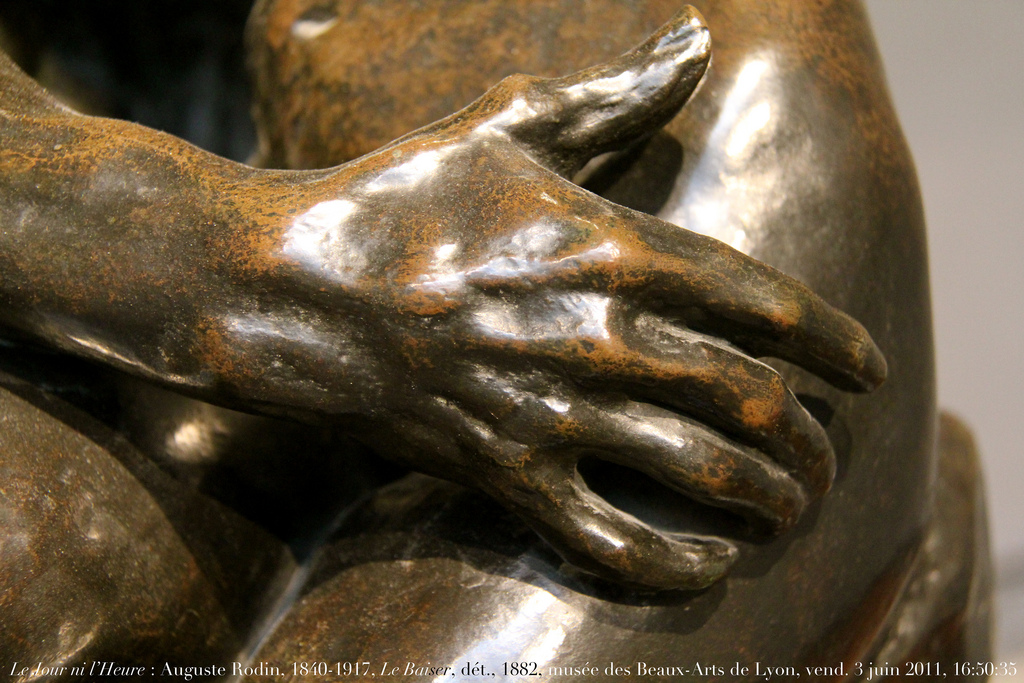
When I told the group of students in this semester’s Sabbath study that Sabbath is meant to be a time to explore and revel in what delights us that was OK. When I said the Jewish tradition explicitly includes sex in the list of delights – that it’s actually prescribed as a Sabbath activity – that was OK, too. When I made sure to say that, of course, the understanding is that these activities take place within a marriage, that was entirely expected and by the book, but it was not OK with me.
That’s what I am supposed to say. It matches our common United Methodist understanding as expressed in the Book of Discipline. I’m not sure how well it matches our lived experience as Christians in North America in 2015. And I’m certain it’s not enough for most young adults to go on. In this particular year of ministry at the University of Virginia I am increasingly uncomfortable with our church conversations about sexuality. I wonder a lot about my role and responsibility as an ordained elder. Is it merely to communicate current stances accurately?
I have known college students who have not yet experienced their first kiss and I have known others who’ve experienced sexual violence. I’ve known students who are desperate to date and find someone and I’ve known others who don’t have time for that because they’re hyper-focused on the next academic and career steps. I’ve known many students who date and have relationships while they are in school and many of them are sexually active. What they all have in common is an appalling lack of religious language and imagery for full-bodied healthy sexuality. Whether they adhere to it or not, they all know that in church circles sex is for marriage. They know it’s a gift from God but it’s a pretty strange gift because it stays wrapped up in Christianese gift language without much exploration of how to use the gift. “When you get married” is not enough of an exploration. Leaving aside for now the huge problem that only certain people in certain places have the option for marriage, this is still a wholly unsatisfactory exploration.
As we discussed rape culture at the Wesley Foundation last semester, it became painfully apparent that unexamined, unexplored gift language can be a further assault to someone who has been sexually violated. If, as some versions of the gift conversation go, this is the best most important gift God gives us and that’s why we need to save it for The One, then what is a raped woman supposed to do with all that? What comfort and what level of conversation is available to her then, in a church community that has only ever said this one thing about sex? For that matter, what theological conversation is available to someone who is sexually active in consenting relationships, as many young adults (and older adults) are? By our narrow focus and our silence are we communicating this is a “leave it at the door” kind of thing?
Our sacred scriptures contain extreme sexual violence (Judges 19 as just one example). They also contain some of the most beautiful poetry, absolutely reveling and delighting in sexual exploration with one’s (unmarried) beloved (Song of Solomon). Our central Christian story starts with an unmarried pregnant teenager and no matter how we understand those events and the notion of being overshadowed by the Holy Spirit as Mary was, those facts remain (Luke 1: 26-38). What do these stories tell us about greed, betrayal, violence, and power? About perseverance? About resourcefulness? About mistakes and punishment? What do they tell us about delight and the powerful connection to another person and that person’s body? About the soaring wonder that we experience skin to skin? What do they tell us about unexplained circumstances? About loyalty? About redemption and the holiness of embodied life and love?
These are just the tip of the iceberg, the first questions that come to mind when I read our community stories involving sex. Notice how much more is going on than mere description of body parts or edicts about right behavior. Notice how little we tend to say about the rest of it.
Saying only “save it for marriage” is not enough and it’s not a fair reflection of our own tradition. In the case of someone who’s been sexually assaulted, if our sexuality conversation is so stilted, euphemistic, and childish that she can’t come (back) to church with the worst thing that’s happened to her, what are we here for anyway? In the case of a restless experimenting teenager who already hasn’t “saved it,” where can she rejoin the church community conversation if she’s already out of bounds?
Ruth Everhart has posted several good pieces this week, asking preachers how we intend to deal with Valentine’s Day and sex. Her posts are a good reminder that we need real, earthy, God-inclusive conversations about sexuality – and not just at Valentine’s Day. The Atlantic published a thoughtful article last fall called “When ‘Do Unto Others’ Meets Hookup Culture” and we used it in our recent Wesley conversations. The author points out that our basic ethic of treating others as we would like to be treated serves as a great starting place for conversations about sexuality. This standard is more than mere consent and it requires attentiveness to the other person, the situation you are in, the relationship or lack thereof…It requires active engagement and moral reflection on an ongoing basis.
What if we in the church shifted focus from the before and after marriage conversation – what if instead of focusing on when to start having sex, we talk together about how we go about it, whenever it is we start? What if we start from the supposition that God’s good gift of sexuality can be expressed in a variety of ways? What if we admit it might be possible to have good, healthy, Christian sex for various reasons and in various forms of relationships, possibly even no relationship? What if we start there because this opens our conversation up to the largest breadth of people and experiences?
When I hold “Ask Your Campus Minister” nights and students can put any questions they want to in a hat, I always pull one out that asks about sex. Whether they’ve read it or not, they already know what our Book of Discipline says. They don’t want to hear “Marriage. Next question?” They want something real that they can use. They want something meaty and nuanced enough to carry them through the complexities of sexuality in its beautiful, surprising, confusing, God-given varieties. Nothing less is OK.
*
photo credit: © 2011 Renaud Camus , CC BY 2.0

